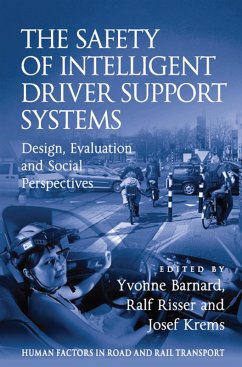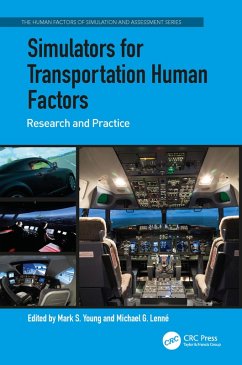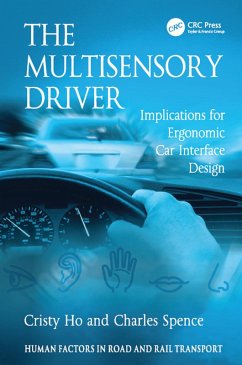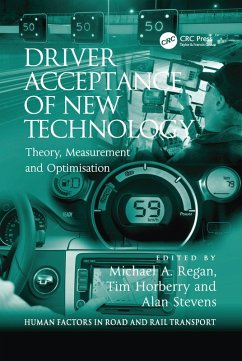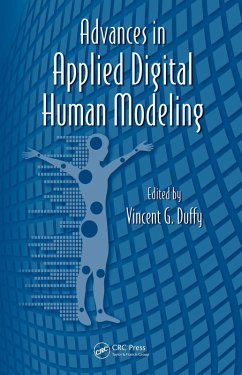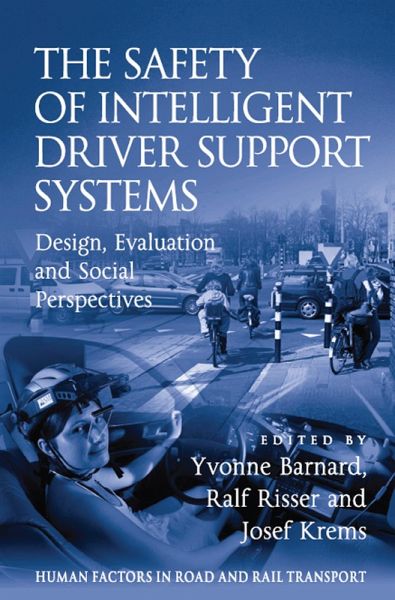
The Safety of Intelligent Driver Support Systems (eBook, PDF)
Design, Evaluation and Social Perspectives
Redaktion: Barnard, Yvonne
Versandkostenfrei!
Sofort per Download lieferbar
57,95 €
inkl. MwSt.
Weitere Ausgaben:

PAYBACK Punkte
29 °P sammeln!
The development of new technologies of information and communication will, in the coming years, transform deeply their uses and practices in transport. The current developments in the field of road telematics and driver assistance systems offer a real opportunity to aid mobility and road safety. However, they also raise numerous questions about their effectiveness, possible positive and negative modifications of behaviour or attitudes and about their acceptability by drivers. Problems related to the design and evaluation of intelligent driver support systems (IDSSs) and social perspectives rel...
The development of new technologies of information and communication will, in the coming years, transform deeply their uses and practices in transport. The current developments in the field of road telematics and driver assistance systems offer a real opportunity to aid mobility and road safety. However, they also raise numerous questions about their effectiveness, possible positive and negative modifications of behaviour or attitudes and about their acceptability by drivers. Problems related to the design and evaluation of intelligent driver support systems (IDSSs) and social perspectives related to their introduction on a large scale may only be fully addressed from a multi-disciplinary point of view. People from different backgrounds, from both engineering and social sciences, should be involved in this development. This book provides such knowledge from both a human and social factors background. The Safety of Intelligent Driver Support Systems serves the training of professionals working within the transport area so that they can use this knowledge in their work. It will be of direct interest to transportation and traffic professionals, engineers, system designers, researchers and specialists working in automotive and related industries, departments of transport, and communication and public bodies related to transport in the automotive industry, public authorities, etc. Also students at Masters and PhD level, performing studies in the road transportation area, will find in this book a rich source of knowledge. Teachers and trainers, both in professional training and academic education, may use the book as a basis for giving a course on the topic addressed.
Dieser Download kann aus rechtlichen Gründen nur mit Rechnungsadresse in A, B, BG, CY, CZ, D, DK, EW, E, FIN, F, GR, HR, H, IRL, I, LT, L, LR, M, NL, PL, P, R, S, SLO, SK ausgeliefert werden.





